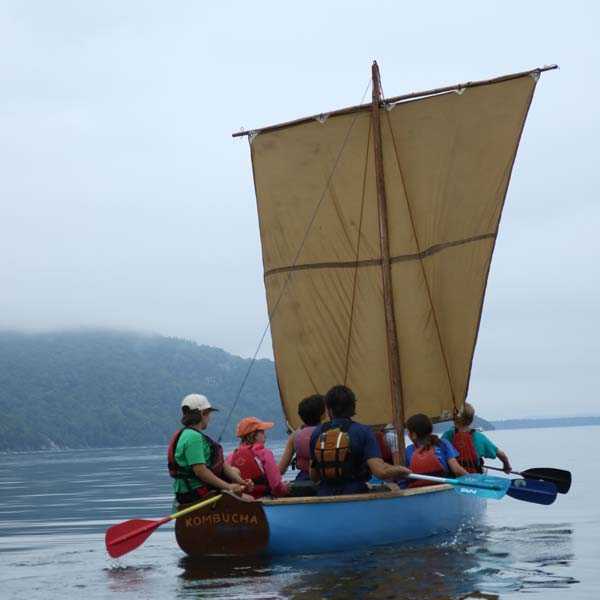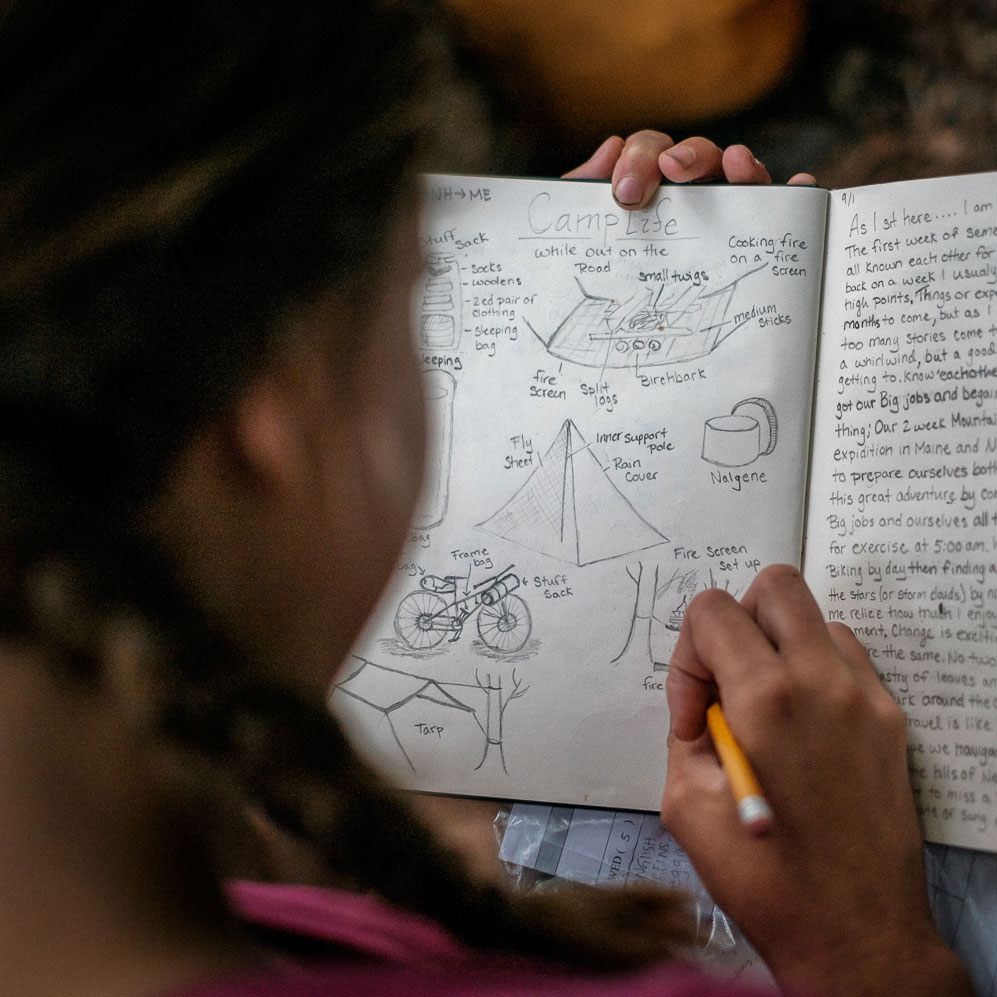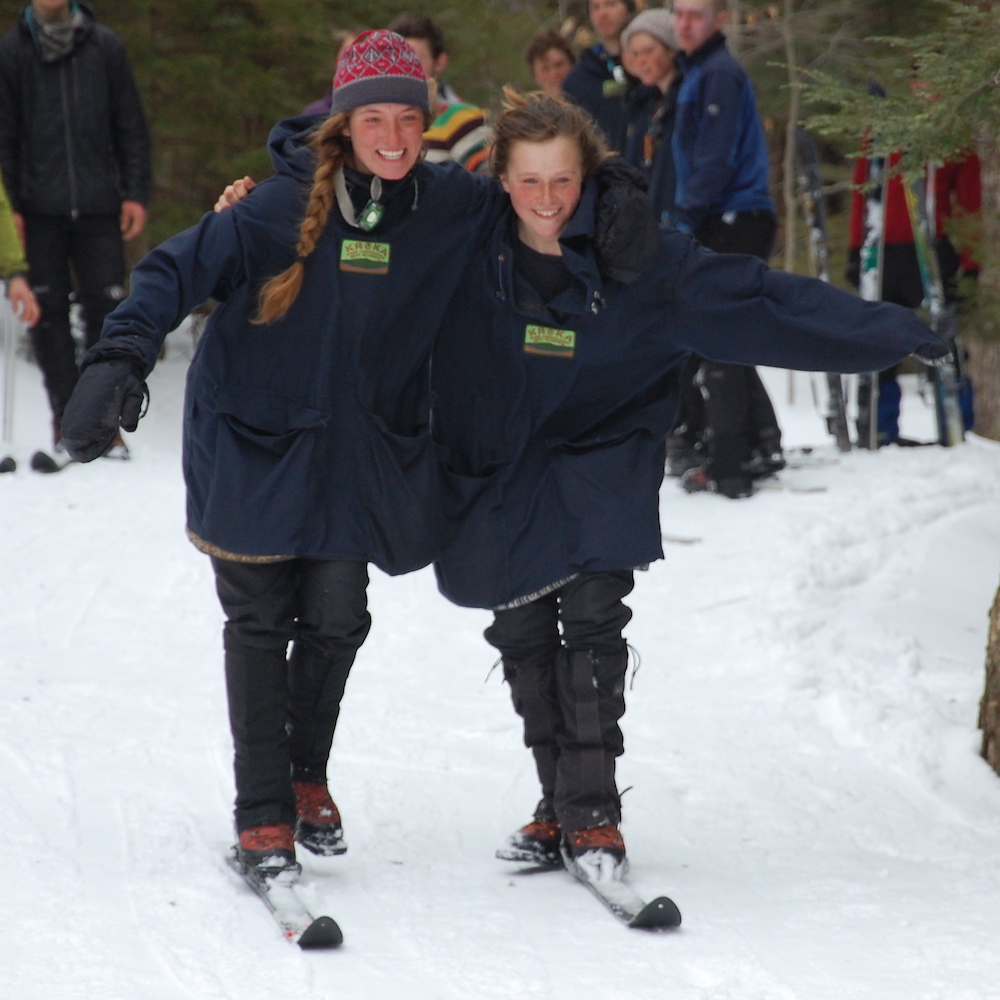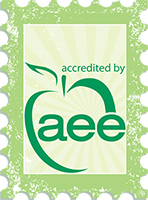Academics & Curriculum
Each semester is divided into two-week blocks. Students will live at Kroka for the duration of each two-week period and then return home for the weekend between blocks. Each block will include:
- Integrated experiential academic study
- Community living and leadership development
- Practical skills including: farming, crafting & community service
- Daily physical activity through adventure sports
- A three to five day-long wilderness expedition
Each session follows a theme of study. This theme is explored through a daily main lesson, reading, journaling, art, exploration in nature, and a culminating wilderness expedition incorporating adventure sports with the academic theme of the session. Themes for the fall will include:
Natural Sciences:
- Solar Power and Renewable Energy Systems
- Chemistry
- Physics
- Astronomy
- Microbiology
- Plant Physiology and Phenology
Social Studies:
- Early American History (1600’s to 1800’s)
- African History and Geography
- Science Biographies
- Social Justice Issues over time
Language Arts:
- Reading of place-based fiction
- Nature writing & creative writing (including: poetry, short stories & songs)
Arts & Crafts:
- Traditional crafts of the First Nation’s people of New England
- Fiber Arts and Sewing
- Drawing & nature illustration
Adventure Sports:
- Nordic and alpine skiing
- Snowshoeing
- Rock/ice climbing
- Dogsledding
- Mountain biking
- Hiking
- Whitewater paddling
Documentation and credits:
Students attending the entire semester will be eligible for school credit from their home school districts. Kroka Community School is accredited by the Association for Experiential Education (AEE) but is not an approved school by the New Hampshire Department of Education. Therefore, any school credits will need to come from your home school districts. We will work with your student’s school at the beginning of the semester to make sure that Kroka’s integrated curriculum will translate to their school requirements. At the end of semester student will receive a narrative evaluation and an official transcript. In addition each student will prepare a portfolio and journal to document their learning. We have a lot of experience doing this for our high school semester students.
Credit hours:
We will not spend as much time in the classroom as students are used to in more traditional school settings. Much of our learning is hands on through observation, development of the senses, and physical experience. We believe that students with developed personal and spatial awareness, athleticism, practical and community living skills, confidence, and a love of learning are well prepared for the lessons and experiences that lay ahead of them in life.




